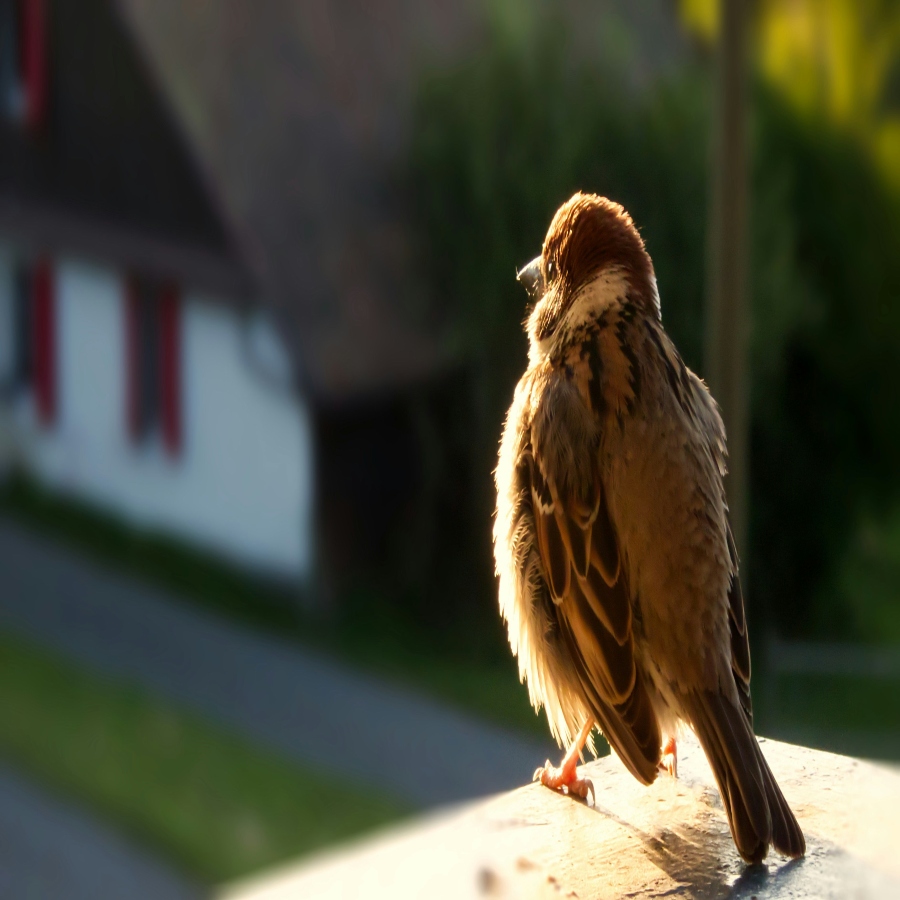Elena cried for the sparrow, for how it slipped a squeal before it hit the front window, a sound that awfully resembled fear. I knew even then that Elena saw something in that bird, a part of herself that wanted to be free and alive, free of everything that crippled its wings, and it was all unfortunate, not because the bird was dead, but because it still looked very much alive.
Our house was going through a transformation, shedding its skin like a snake. The door to the front porch was ajar, the bug screen opened all the way out, and a swampy, sticky warmness filled the rooms, filled our lungs. Flies, big or small, crowded around the kitchen area, punishing all the open lids. Elena was seated on the living room couch, a tube wrapped around her left arm. Our cat Oprah circled around her needle-marked feet, in wait for Elena to relinquish the dead bird like a treat.
“Pendejo,” Elena cursed under her breath.
The way she muttered the word must have done the trick, or the way she lunged her foot forward like a laggardly kick, because Oprah gave up on its mission and jumped on the sofa by the TV, its tail coiled into a full circle. The sparrow remained motionless in Elena’s hands, neck bent into an ungainly angle.
“We have to bury her,” she said, looking down, eyes puffy with either sorrow or the first kick of the drug. Or both.
When I was little, I looked after a parakeet that had the name of a dinosaur. Mom had insisted I don’t put it in a cage so Rex had the freedom of flying about in the birch woods to the north of our house all day, every day, leading a life on its own terms. I enjoyed watching Rex come and go as it pleased, until one day, it didn’t return home. For weeks to come, I cried for all the ways Rex could be hurt out in the wild or even dead. I asked Mom what would happen to the animals that strayed far from home, and she fell suspiciously quiet. We left the subject at that, never to resume.
I thought: the asteroid that ended the dinosaurs was probably the one stone that killed most birds in history.
“We have to bury her,” Elena said again, looking up at me. “Give her a sweet farewell.”
My head gave in to a small, courteous nod. I knew we had to go through what was needed to be done, together. I imagined us walking to the backyard, where we kept all the dead, frail bones of nature. I imagined us facing the trees that accommodated many a bird on their branches, their tops rustling with a soothing wind, reminding me of the times I hid in its depths to escape from all the hard truths of my childhood. Today, grounded in the hard earth of adulthood, we would have to face the side of nature we’d had to ignore all this time, all the animals we killed to eat, all the plants and herbs we plucked to enhance the smell.
We have to bury her, give her a sweet farewell.
I walked across the living room to take the dead sparrow from Elena’s hands. Giving it up, her body plopped back on the couch as if a great weight were lifted off her shoulders, setting her free. I carried the bird to the kitchen, covered it with a hand towel. I stalked to the backyard and faced the heat full-on, sans Elena, and the trees stood eerily still against my expectations, greeting me and the bird with their unmoving glare. The birds on the branches chirped their collective song, and I loved to imagine them all migrating away and pursuing their lives elsewhere, in better, more promising places than here, half-eager to move on, half not, certain that everything is going to be all right at the next stop. •

